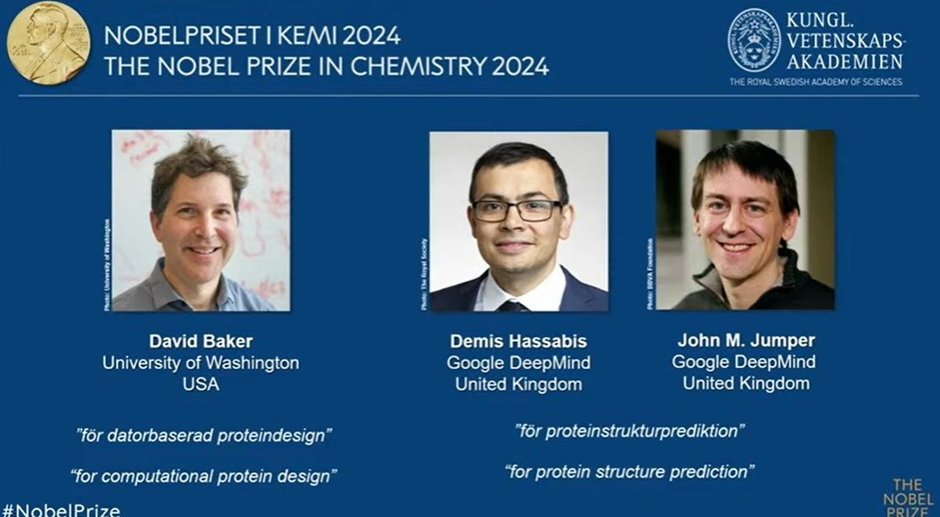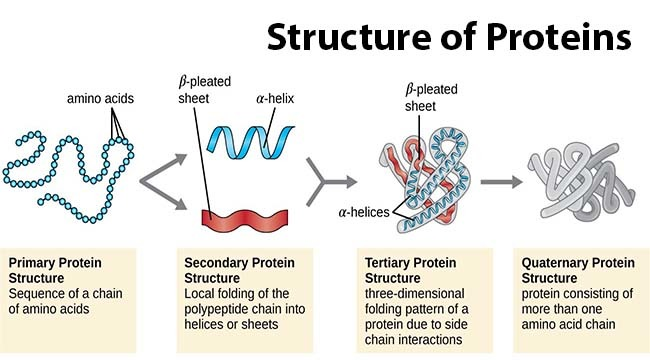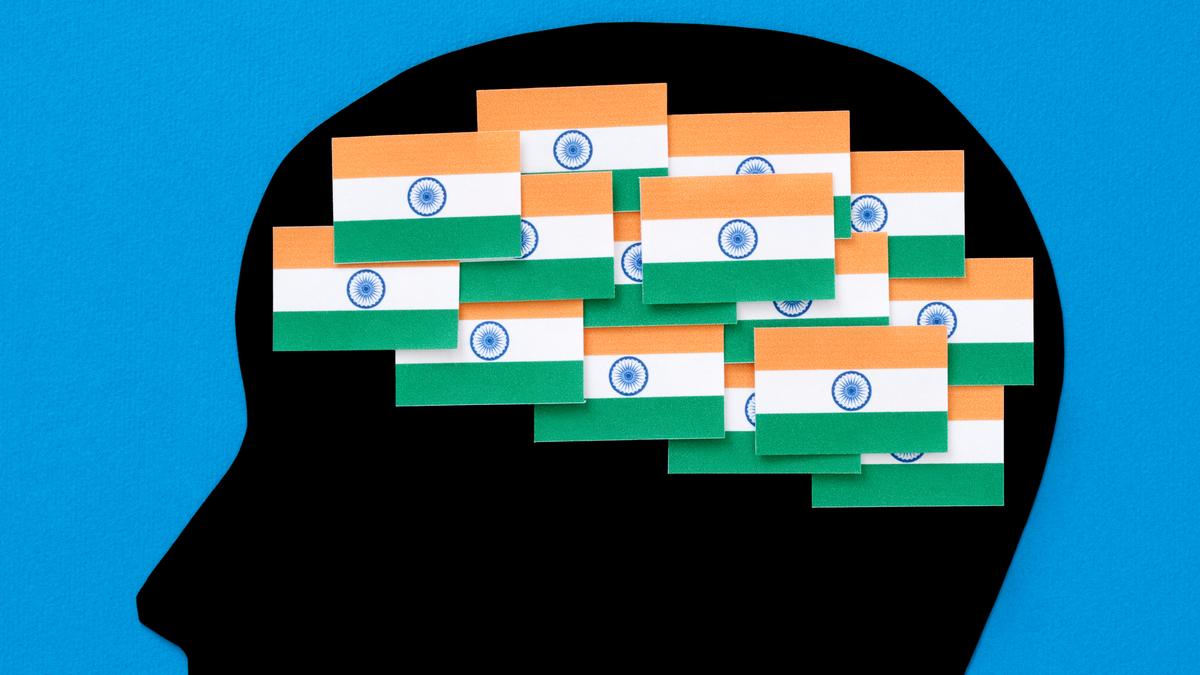- Courses
- GS Full Course 1 Year
- GS Full Course 2 Year
- GS Full Course 3 Year
- GS Full Course Till Selection
- Answer Alpha: Mains 2025 Mentorship
- MEP (Mains Enrichment Programme) Data, Facts
- Essay Target – 150+ Marks
- Online Program
- GS Recorded Course
- Polity
- Geography
- Economy
- Ancient, Medieval and Art & Culture AMAC
- Modern India, Post Independence & World History
- Environment
- Governance
- Science & Technology
- International Relations and Internal Security
- Disaster Management
- Ethics
- NCERT Current Affairs
- Indian Society and Social Issue
- NCERT- Science and Technology
- NCERT - Geography
- NCERT - Ancient History
- NCERT- World History
- NCERT Modern History
- CSAT
- 5 LAYERED ARJUNA Mentorship
- Public Administration Optional
- ABOUT US
- OUR TOPPERS
- TEST SERIES
- FREE STUDY MATERIAL
- VIDEOS
- CONTACT US
2024 Nobel Prize in Chemistry
2024 Nobel Prize in Chemistry
10-10-2024

The 2024 Nobel Prize in Chemistry was awarded to David Baker, Demis Hassabis, and John Jumper for their pioneering work in understanding protein structures and creating new proteins.
- This award highlights the role of artificial intelligence (AI) in enhancing our knowledge of proteins, which are vital for all forms of life.
Importance of Proteins
- Role in Biological Processes: Proteins are crucial for nearly every function in living organisms. For instance:
- Hemoglobin: Transports oxygen in the blood.
- Insulin: Helps manage blood sugar levels.
- Key Functions:
- Enzymes: Speed up chemical reactions in the body.
- Structural Proteins: Support cells and tissues.
- Immune Proteins: Assist in fighting infections.
- Storage Proteins: Store nutrients and energy.
- Composition: Proteins are long chains made of 20 different amino acids. The specific order and shape of these amino acids determine how a protein works.

- Extensive Study: Given their significance, proteins have been studied for many years. The CASP competition, started in 1994, focused on predicting protein structures, with Jumper's team winning decisively in 2020.
Historical Context
- Protein Structure and Function: The sequence of amino acids determines how proteins fold and function. This was recognized when Christian Anfinsen won the Nobel Prize in 1972 for his work on protein folding.
- Challenges: Understanding protein structures has been difficult due to their complex arrangements, similar to deciphering the grammar of a language.
Traditional Methods vs. AI Innovations
- Traditional Approaches: Techniques like X-ray crystallography have been the primary means of determining protein structures, but these methods are slow and can take years.
Development of AlphaFold
- Creators: Demis Hassabis and John Jumper developed AlphaFold, an AI tool that predicts protein structures using databases of known amino acid sequences.
- Efficiency: AlphaFold represents a shift from traditional methods to data-driven approaches, allowing much faster predictions of protein shapes.
Contributions of Jumper and Hassabis
- Understanding Protein Structure: Proteins are made from amino acids that form long chains, which fold into unique three-dimensional shapes.
- Historical Insight: In the 1960s, Anfinsen showed that a protein’s shape is dictated by its amino acid sequence, suggesting that knowing this sequence could help predict a protein’s shape.
- AlphaFold Development: Hassabis co-founded DeepMind, which created AI models. His team entered CASP in 2018 with AlphaFold, achieving a 60% accuracy in predictions. Jumper’s involvement led to significant improvements in this accuracy.
Contributions of David Baker
- Creating New Proteins: David Baker used computational methods to design new proteins that do not exist in nature but can perform specific tasks.
- Innovative Approach: His method is akin to forming new sentences, allowing the creation of proteins with novel functions, such as breaking down plastics.
Importance of Their Work
- Understanding Life Functions: The ability to visualize protein structures helps researchers learn about life processes, including how diseases develop and why some microbes can degrade plastics.
- Creating New Proteins: Their research enables the design of proteins with new functions, leading to:
- New materials and targeted medicines.
- Faster vaccine development.
- Environmental sensors and a greener chemical industry.
Implications of the Research
- Impact on Drug Discovery: Their work could revolutionize how new medicines are discovered and how diseases related to protein malfunctions are treated.
- Efficiency in Protein Design: Baker’s approach is much quicker than traditional methods, which often involve lengthy trial-and-error processes.
Significance of AI in Scientific Research
- Recognition in Nobel Prizes: The 2024 Chemistry Nobel follows the 2024 Physics Nobel, both highlighting AI's impact on research. AlphaFold was cited as a key example of AI's contributions to science.
- Community Excitement: Many in the research field anticipated this recognition due to the transformative effects of these AI advancements in protein science.
Conclusion
The 2024 Chemistry Nobel Prize underscores the vital role of AI in understanding and designing proteins. The achievements of Baker, Hassabis, and Jumper not only advance scientific knowledge but also hold great promise for practical applications in health, industry, and environmental sustainability.




